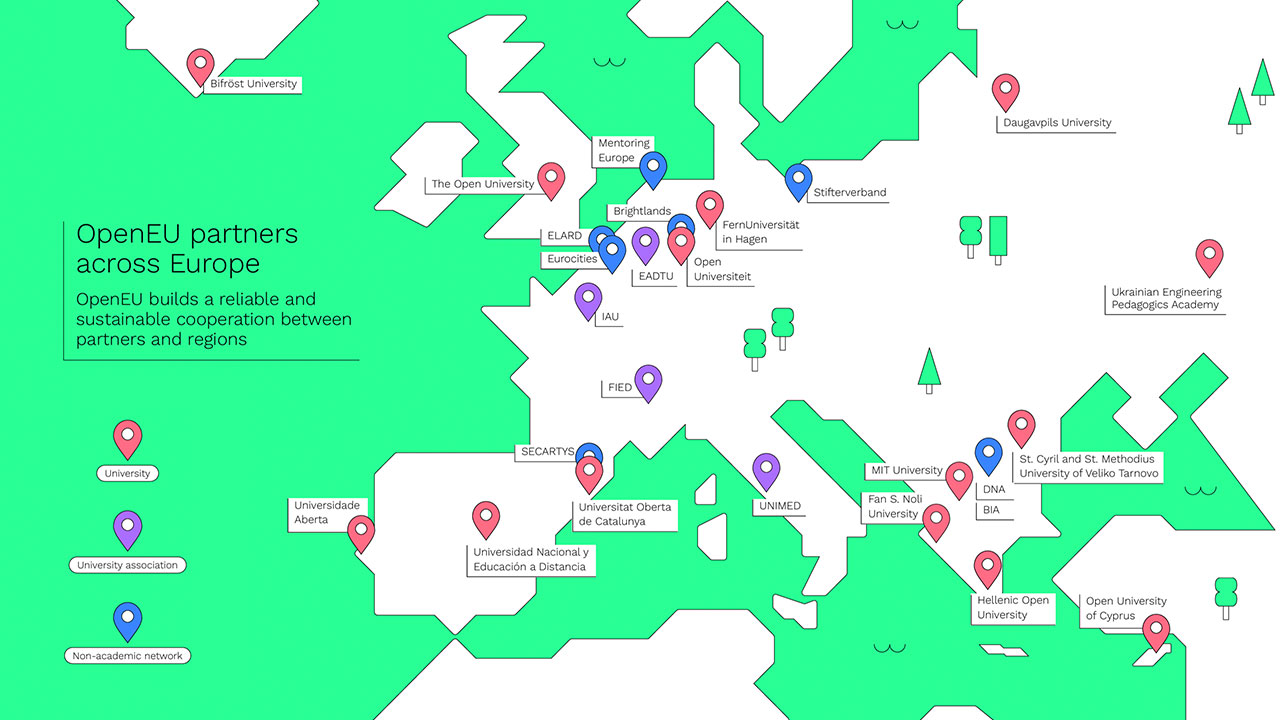This October the UOC hosts the Learning Impact Europe edtech conference
The conference will bring together education providers, public bodies and edtech organizations
The UOC is once again at the forefront of educational technology (edtech) with the organization of the 2024 Learning Impact Europe congress, the European meeting of the 1EdTech Consortium, of which our university is a member.
Learning Impact Europe brings together a diverse group of education providers, public bodies and edtech (educational technology) providers to examine some of the main challenges in education. "Together we are creating a trusted digital learning ecosystem that works for everyone, because we work with everyone," explained the UOC's Deputy General Manager for Digital Transformation, Ricard Mateu.
Learning Impact Europe 2024 is an initiative of the 1EdTech Consortium, the largest and most innovative edtech collaboration in the world, bringing together educational institutions and large companies in the edtech sector, with more than 1,000 member organizations from schools, higher education and corporate learning.
The consortium aims to facilitate and promote an open, reliable and innovative educational technology ecosystem that meets people's lifelong learning needs. It promotes technological developments that can be applied to higher education, such as everything involved in the development of artificial intelligence (AI).
Edtech, or educational technology, refers to the use of technology to improve the learning experience of students and teachers. It includes both hardware and software, as well as other tools that help students learn, collaborate, and engage with students in other locations. Edtech can be used in both public and private education, and for ongoing professional development and lifelong learning. The resources used by edtech include tablets, interactive online courses, robots, and virtual and augmented reality. The conference will take place on 9, 10 and 11 October at the UOC Campus.
UOC edtech experts among the key speakers
The UOC's leading experts and lecturers in edtech-related subjects are taking part in the conference. The opening speech will be given by Xavier Vilajosana, Vice Rector for Research, Knowledge Transfer and Entrepreneurship. Vilajosana is a member of the UOC's WiNe (Wireless Networks Research Lab) R&D&I group. He is also a member of the IEEE and a visiting professor at the University of California, Berkeley.
Faculty of Computer Science, Multimedia and Telecommunications member Robert Clarisó will present the digital assessment project AFIA (Assessment, Feedback and Artificial Intelligence), based on the three pillars that must contribute to the student's learning experience. During his speech, Clarisó will describe how GenAI (generative artificial intelligence) is being introduced at the UOC, an online university that offers distance learning through a virtual campus. The challenges and opportunities of GenAI in a distance learning environment will be discussed, highlighting significant and promising uses.
Digital assessment is a key focus for the UOC. Since the advent of ChatGPT, GenAI has gone from being a research topic to becoming a tool available in everyday life. From a pedagogical point of view, GenAI can support learning, allowing the user to explore ideas, resolve doubts and propose or refine solutions to a problem. However, GenAI raises many concerns: it may make mistakes or give biased answers; it has a high economic and environmental cost; and, when used inappropriately, it can interfere with the learning process.
Pastora Martínez, Commissioner for International Action for the UOC/OpenEU Consortium, will explain the OpenEU (Open European University Alliance) project. These alliances are key to European university strategy; they comprise about 60 alliances between European universities, involving more than 500 higher education institutions in 2024. Of these, OpenEU, the alliance led by the UOC, brings together open and online education institutions.
OpenEU's vision is to become a pan-European open university that leverages digital education for and with lifelong learners and communities to improve our world. It aims to contribute to the digital transformation of higher education institutions by supporting them in the integration of digital technologies for education.
Ricard Mateu, the UOC's Deputy General Manager for Digital Transformation, will participate in a round table on "Digital Transformation Today and Tomorrow" with other leading figures in the world of education (Deborah Green, CEO of UCIA, Martin Bean, CEO of The Bean Centre, Maxine Room, Head of People Operations at Unyted, and Sidharth Oberoi, Vice President of International Strategy at Instructure) to talk about today's reality and the vision for tomorrow's digital transformation.
The director of the UOC eLearning Innovation Center (eLinc), Sílvia Sivera, and the eLinc's senior project manager, Ricard Hortigüela, will present the UOC's Insignia initiative, designed to meet needs for continuous updating of skills and knowledge. In the context of a constantly evolving labour market, driven by the digital transformation and the knowledge economy, skills and knowledge need to be updated continuously. Universities must respond with flexible and up-to-date educational programmes and the UOC Insignia initiative empowers students to manage their own professional and personal careers. It offers opportunities for accreditation, self-knowledge and building a digital identity, as well as providing services, information and resources for lifelong learning. This allows students to acquire and demonstrate skills flexibly, in line with the needs of the global labour market. The two experts will talk about the projects, the approaches and, above all, the thinking that is driving a real transformation of the learning experience at the UOC.
This year's congress, held at the UOC, also features speakers who are leading figures in the sector, such as Mhairi Aitken, Senior Ethics Fellow at the Alan Turing Institute; Gavin McLachlan, Vice-Principal, CIO and Librarian at the University of Edinburgh; and Colin Smythe, Chief Architect of 1EdTech.
Other talks, presentations and round tables at the congress address the use of AI in education, there are workshops on LTI 1.3 and NREN (National Research and Education Networks) as well as activities on edtech standards, online security and data privacy, efficiency in eLearning, diversity and creativity. Registration will remain open until 11 October.
Press contact
-
Anna Torres Garrote

